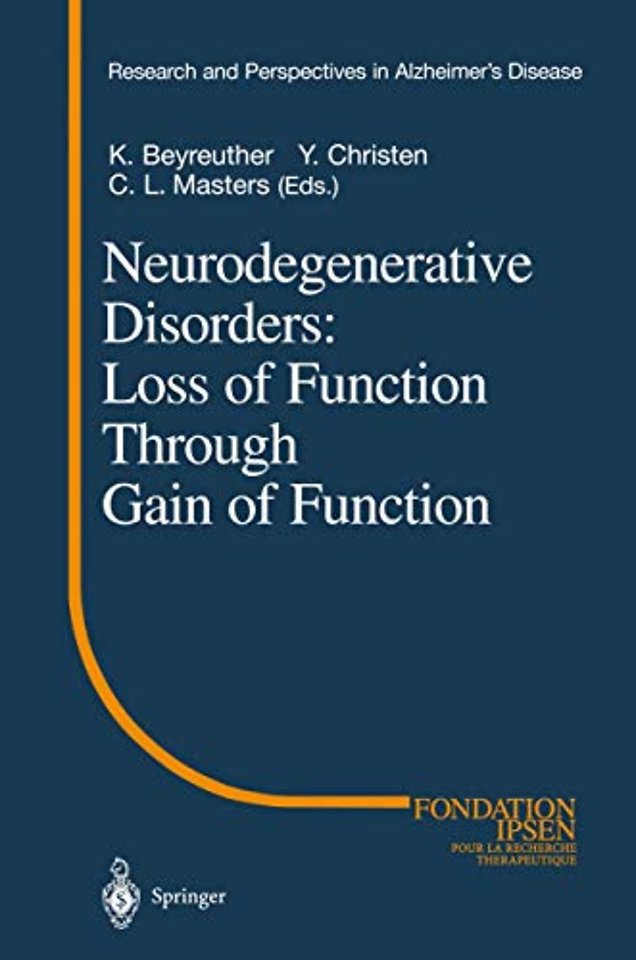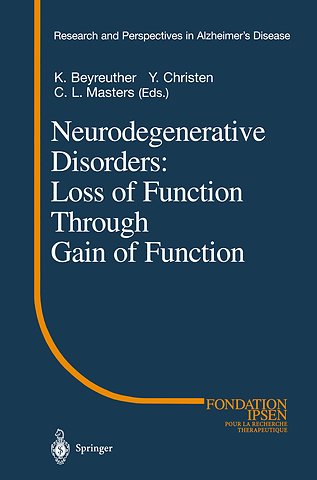Neurodegenerative Disorders: Loss of Function Through Gain of Function
Samenvatting
Fondation Ipsen sponsored a meeting in Paris in February 2000 on the emerging paradigm-shift in our understanding of the major degenerative diseases which affect the aging human brain. This book sumarizes our deliberations on some of these major neurodegenerative diseases that are characterized by protein depos its, and that are due to the pathogenic gain of function of an otherwise normal neuronal protein. For each of the major human neurodegenerative diseases covered in this book -the most prominent being Alzheimer's disease -experimental models are described, including cell culture systems and animal models which range from the round worm, Caenorhabditis elegans, the fruitfly, Drosophila melanogaster, to rodents. Remarkably, in the sporadic forms of these human diseases, only a minor change in the level of production or turn-over of the relevant proteins is sufficient to cause disease in late adult-hood. Neurodegeneration in Alzheimer's disease, for example, usually results in symptoms and signs in the seventh to eighth decades. In contrast, the development of protein deposits in transgenic mice over-expressing the corresponding disease gene parallels the genetic forms of the human diseases in regard to its manifestation occuring half-way through its normal life-span, i. e. about 50 years in humans (the so-called "presenium") and 9 to 12 months in the mouse. Nevertheless, these models have served to elu cidate many of the pathways underlying the human disease processes, for instance clarifying the neuronal origin of parenchymal and perivascular amyloid in Alzheimer's disease and Creutzfeldt-Jakob disease.
Specificaties
Inhoudsopgave
Net verschenen
Rubrieken
- aanbestedingsrecht
- aansprakelijkheids- en verzekeringsrecht
- accountancy
- algemeen juridisch
- arbeidsrecht
- bank- en effectenrecht
- bestuursrecht
- bouwrecht
- burgerlijk recht en procesrecht
- europees-internationaal recht
- fiscaal recht
- gezondheidsrecht
- insolventierecht
- intellectuele eigendom en ict-recht
- management
- mens en maatschappij
- milieu- en omgevingsrecht
- notarieel recht
- ondernemingsrecht
- pensioenrecht
- personen- en familierecht
- sociale zekerheidsrecht
- staatsrecht
- strafrecht en criminologie
- vastgoed- en huurrecht
- vreemdelingenrecht

